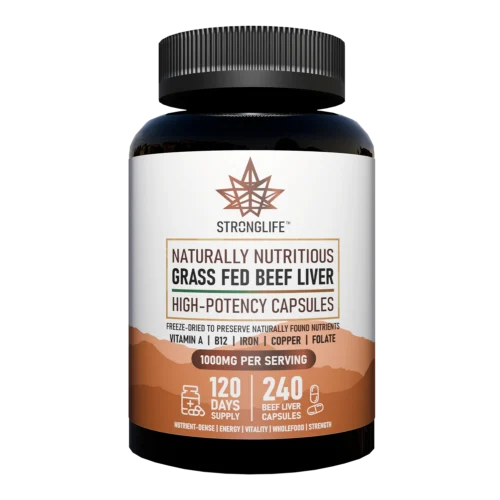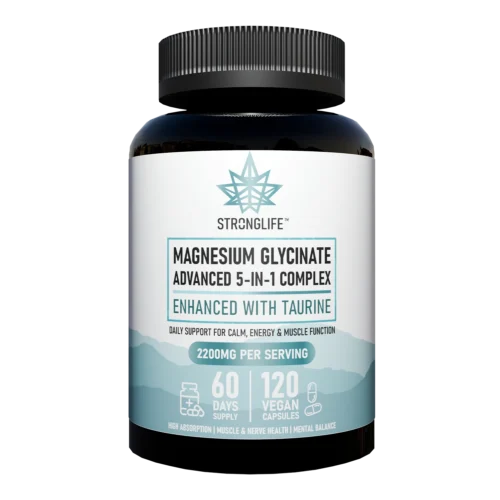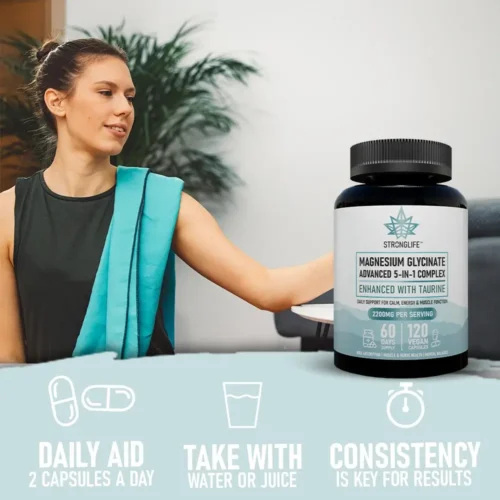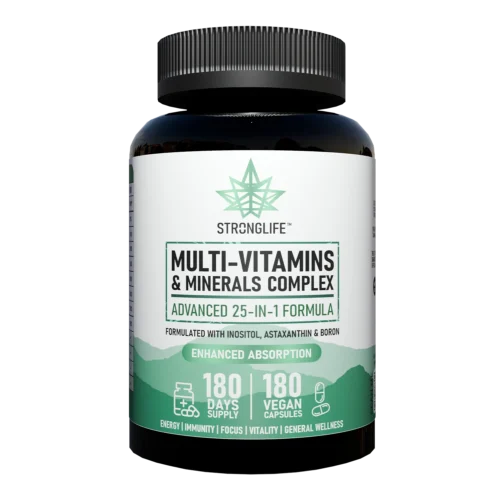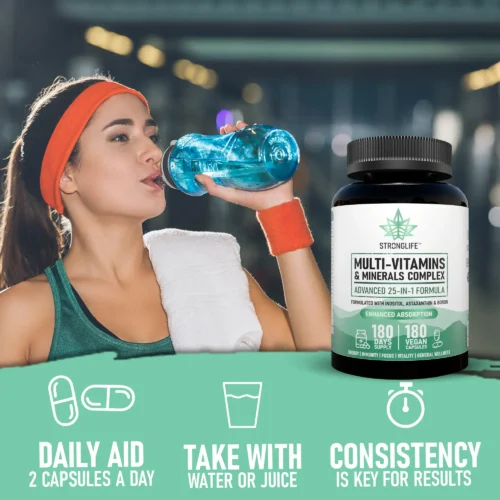- SUPPORT
-
Contact Us Need assistance or have a question? Our team is here to help! Whether it’s about our products, orders, or general inquiries.
-
Subscriptions Enjoy 20% off and never miss out on your essentials! Set up a subscription to receive your favourite supplements automatically.
-
Loyalty Scheme Get rewarded every time you shop! With our Loyalty Scheme, you’ll earn 10% back in points for every order you place.
-
Become an Affiliate Turn your influence into income! Join our affiliate program and earn 20% commission on every new order you refer.
-
Delivery & Returns Policy We aim to dispatch all orders within 1-2 business days, ensuring fast and reliable shipping.
-
Wholesale Looking to stock our products? We offer competitive wholesale pricing and flexible order options to suit your business needs.
-
- FAQs
- BLOG
Your Questions, Answered In Our Blog
Edit Content
Minerals
Minerals are essential nutrients that your body needs to perform a wide range of vital functions. These naturally occurring substances play a key role in everything from building strong bones to supporting your metabolism and helping your cells function properly
-
30 Calcium Magnesium & Zinc Patches
Original price was: £39.99.£14.99Current price is: £14.99. -
30 Iron & Vitamin Patches
Original price was: £39.99.£19.99Current price is: £19.99.
Vitamin C, A & B12 -
60 Magnesium Complex
Original price was: £29.99.£18.99Current price is: £18.99.
4-in-1 Patches -
60 Natural Menopause Patches
Original price was: £39.99.£19.99Current price is: £19.99. -
60 Vitamin B12 & Magnesium Patches
Original price was: £29.99.£16.99Current price is: £16.99. -
Anxiety Support Oral Drops
Original price was: £59.99.£24.99Current price is: £24.99. -
Sleep Support Oral Drops
£24.99 -
Anxiety Support Bundle (Anxiety Drops + CBD Oil)
From £64.99 (Save £20)
If you’re looking to optimise your health and ensure your body is running at its best, incorporating a balance of minerals into your diet or through supplements can make a significant difference. Let’s dive deeper into what minerals are, their benefits, and how to choose the right ones for your needs.
What Are Minerals, and Why Are They Important?
Minerals are inorganic compounds that your body cannot produce on its own, meaning you need to get them from your diet or supplements. They are divided into two main categories: macrominerals (needed in larger amounts, such as calcium, magnesium, and potassium) and trace minerals (needed in smaller amounts, like zinc, iron, and selenium).
These nutrients are crucial because they perform numerous roles in the body. For instance, calcium helps build strong bones and teeth, while magnesium supports muscle function and energy production. Without adequate minerals, you might notice symptoms like fatigue, muscle cramps, or even more serious health concerns over time.
Types of Essential Minerals and Their Functions
1. Calcium: The Foundation for Bone Health
Calcium is one of the most well-known minerals and is crucial for maintaining strong bones and teeth. It also plays a role in muscle contraction, blood clotting, and nerve signalling. If you’re not getting enough calcium, your body may pull it from your bones, leading to issues like osteoporosis.
2. Magnesium: Energy and Relaxation
Magnesium is often called the “relaxation mineral” because it helps with muscle relaxation and reduces stress. Additionally, it contributes to energy production, supports a healthy nervous system, and regulates blood sugar levels. It’s no wonder magnesium is becoming a popular supplement for people looking to enhance their overall well-being.
3. Potassium: Keeping Your Heart in Check
Potassium is an electrolyte that helps balance fluids in your body, maintain healthy blood pressure, and regulate heart function. It works hand-in-hand with sodium to ensure your cells stay hydrated and your muscles work efficiently.
4. Zinc: The Immune-Boosting Mineral
Zinc is a trace mineral with powerful benefits, especially for your immune system. It helps your body fight infections, promotes wound healing, and supports cell growth and repair. Zinc may also support skin health, making it a common ingredient in skincare products.
5. Iron: Oxygen Transporter
Iron is essential for the production of haemoglobin, the protein in red blood cells that carries oxygen throughout your body. Without enough iron, you may feel fatigued or weak. It’s particularly important for women, athletes, and anyone with a higher risk of deficiency.
6. Selenium: A Powerful Antioxidant
Selenium acts as a potent antioxidant, protecting your cells from damage caused by free radicals. It also plays a role in thyroid health and immune function. Interestingly, selenium can be found in Brazil nuts, which are often touted as a natural source of this trace mineral.
How Minerals Support Overall Health
Minerals work together to ensure your body functions optimally. Here are some of their key roles:
- Bone Health: Calcium, magnesium, and phosphorus are vital for maintaining strong bones and teeth.
- Muscle Function: Minerals like potassium and magnesium help your muscles contract and relax properly.
- Energy Production: Iron, magnesium, and zinc support the enzymes that produce energy in your cells.
- Immune Support: Zinc and selenium play a major role in keeping your immune system robust.
- Hydration and Balance: Electrolytes like sodium, potassium, and chloride maintain your body’s fluid balance and support nerve function.
Signs You May Need More Minerals
Your body gives you clues when it’s lacking essential nutrients. Some common signs of mineral deficiencies include:
- Fatigue or low energy levels
- Muscle cramps or weakness
- Poor concentration or brain fog
- Hair loss or brittle nails
- Weakened immune system or frequent illnesses
If you experience any of these symptoms, it might be worth considering whether your diet is providing enough minerals.
Sources of Minerals: Diet vs. Supplements
The best way to get minerals is through a balanced diet rich in whole, nutrient-dense foods. Here are some excellent food sources:
- Calcium: Dairy products, leafy greens, and fortified plant milks
- Magnesium: Nuts, seeds, whole grains, and dark chocolate
- Potassium: Bananas, potatoes, and avocados
- Zinc: Meat, shellfish, and legumes
- Iron: Red meat, beans, and fortified cereals
- Selenium: Brazil nuts, fish, and eggs
However, modern diets often lack adequate minerals due to soil depletion, processing, or dietary restrictions. This is where supplements come in handy. A high-quality mineral supplement can help fill the gaps and ensure you’re meeting your daily requirements.
Choosing the Right Mineral Supplements
When selecting a mineral supplement, consider the following tips:
- Check for Quality: Look for third-party testing to ensure purity and potency.
- Consider Bioavailability: Some forms of minerals, like magnesium citrate or zinc picolinate, are more easily absorbed by the body.
- Match Your Needs: If you’re low in energy, iron might be beneficial. For stress relief, magnesium could help. Tailor your choice based on your specific health goals.
- Avoid Over-Supplementation: Too much of certain minerals, like iron or selenium, can be harmful. Stick to recommended dosages.
Supporting a Healthy Lifestyle with Minerals
Incorporating minerals into your daily routine is an excellent way to support your overall health. Whether through a nutrient-rich diet or supplements, ensuring you get enough of these essential nutrients can help you feel energised, resilient, and ready to tackle the day.


